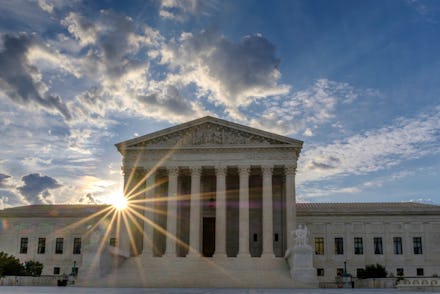Supreme Court to hear travel ban case in fall, allows limited version of ban to go into effect

The Supreme Court on Monday announced it will hear arguments on the legality of President Donald Trump's travel ban — setting up a landmark decision when the court reconvenes for a new session in the fall.
The Supreme Court also issued a more limited block on the ban's enforcement until it hears arguments on the executive order's merits in October — when the court returns.
"We leave the injunctions entered by the lower courts in place with respect to respondents [who have a] bona fide relationship with a person or entity in the United States," the court wrote in accepting the case.
In its decision to hear arguments of the case, the Supreme Court gives examples of foreign nationals who won't fall under the travel ban enforcement.
"For individuals, a close familial relationship is required," the Supreme Court wrote, giving examples of foreign nationals who want to "live with or visit a family member."
The Supreme Court also said others who won't be included in the ban's enforcement are, "students from the designated countries who have been admitted" to a college or university in the United States.
"When it comes to refugees who lack any such connection to the United States, for the reasons we have set out, the balance tips in favor of the government’s compelling need to provide for the nation’s security," the court wrote in its decision granting the case — handing a partial victory to Trump.
Two federal appeals courts had blocked enforcement of the ban until lower courts can hear the full arguments about whether the ban violates the Constitution. In blocking enforcement of the ban, the appeals courts said those challenging Trump's executive order are likely to succeed in proving the ban is unconstitutional.
The Richmond-based 4th Circuit Court of Appeals said the ban "drips with religious intolerance, animus and discrimination," while the 9th Circuit Court of Appeals said Trump, "exceeded the scope of the authority delegated to him by Congress" while writing the ban.
June 26, 2017 10:56 a.m.: This article has been updated.